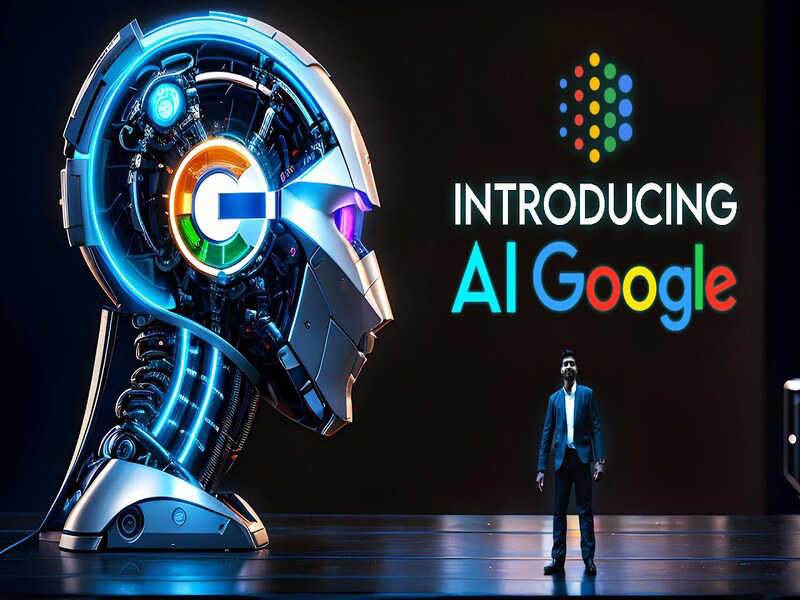
Google Uses AI Technology to Make Automatic Settings Easier on Android
Tech by Android – Google Uses AI Technology to Simplify Android Settings
Google is revolutionizing Android devices by integrating artificial intelligence (AI) to replace manual settings. According to 9to5Google, the company aims to predict user preferences and automatically adjust device configurations without requiring users to navigate through settings menus. This AI-driven approach simplifies how users interact with their devices, making it more seamless and efficient.
With this advancement, Android users can expect automated adjustments for various elements such as the camera, keyboard, and applications. The system will learn from user behavior and customize settings accordingly. This innovation significantly reduces the need for manual configuration, making the experience smoother and more intuitive.
Google’s move aligns with the growing trend of automation in technology. Users are increasingly seeking effortless interactions with their devices, and AI is the key to achieving this goal. Samsung has already implemented similar automation through its virtual assistant, Bixby. By embedding AI directly into Android, Google enhances personalization while reducing reliance on traditional manual settings.
“Read more : Android Gaming Smartphones Updated February 2025, with Chipset Snapdragon 8 Gen 3“
The demand for AI-powered technologies is rapidly increasing, requiring vast amounts of energy to operate efficiently. To address this challenge, Google is turning to nuclear energy to power its AI systems. Partnering with Kairos Power, a nuclear energy technology company, Google is investing in innovative energy solutions at Three Mile Island, a site known for the largest nuclear incident in U.S. history.
Michael Terrell, Google’s Senior Director for Energy and Climate, emphasized the importance of nuclear power in sustaining AI growth. He stated, “Nuclear energy is crucial for a clean and reliable power supply to support AI expansion.” The collaboration supports Kairos Power’s development of the first small modular reactor (SMR) project, set to generate 500 megawatts of electricity by 2035.
SMRs are considered more compact and efficient compared to conventional nuclear reactors. However, this technology is still in the early stages and requires regulatory approval. Other tech giants, including Microsoft, are also investing in SMR projects, with backing from Bill Gates.
Google’s long-term strategy focuses on securing a carbon-free energy supply while supporting AI-powered innovations. Terrell highlighted the global benefits of this initiative, stating, “If this project succeeds globally, it will provide immense advantages for both society and energy infrastructure.”
Despite the potential benefits, nuclear energy remains a controversial topic. Concerns over radioactive waste, accident risks, and high costs continue to spark debates. The Three Mile Island disaster in 1979 raised safety concerns, although the U.S. Nuclear Regulatory Commission reported no significant health impacts from the incident.
“Read more : How Radiation Safety Protection and Safety Regulation in Medical Radiography“
As AI technology advances, data centers require substantial power to sustain operations. Microsoft, for instance, plans to leverage nuclear energy from Three Mile Island to strengthen power grids across 13 states. The increasing energy consumption of data centers raises concerns about power grid stability, especially with AI-driven energy demands.
Amazon Web Services (AWS) is also investing in nuclear-powered data centers. The company has allocated $650 million (approximately 10 trillion Indonesian Rupiah) to support a data center in Pennsylvania powered by nuclear energy.
While nuclear energy offers a consistent power source compared to solar or wind energy, it faces criticism due to radioactive waste management challenges, accident risks, and the high costs associated with plant construction and decommissioning.
Google Uses AI Technology to enhance Android automation, making it easier for users to manage settings effortlessly. By integrating AI-driven automation, Google improves user experience while reducing dependence on manual configurations. Additionally, the company’s investment in nuclear energy highlights its commitment to sustainable AI-powered advancements.
Despite concerns over nuclear energy, tech giants continue to explore innovative energy solutions to meet AI’s growing power demands. With major companies like Google and Microsoft leading the way, AI technology is set to revolutionize both mobile and energy sectors.
For more updates on AI advancements and energy solutions, visit Tech by Android or techbyandroid.com.